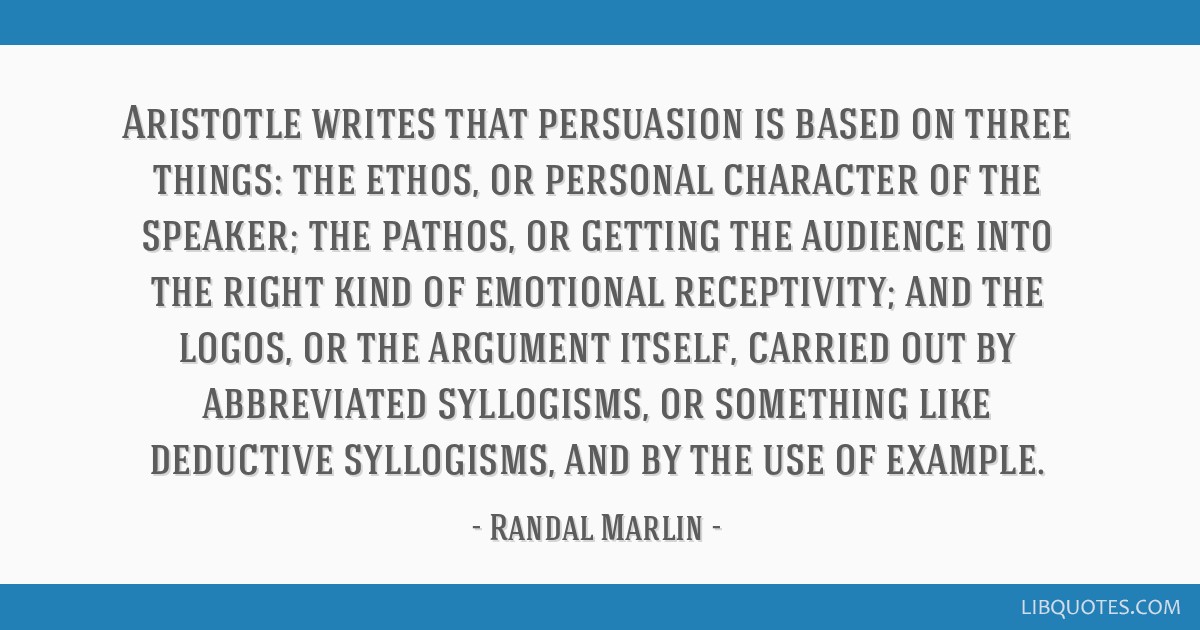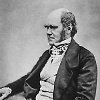Aristotle writes that persuasion is based on three things: the ethos, or personal character of the speaker; the pathos, or getting the audience into the right kind of emotional receptivity; and the logos, or the argument itself, carried out by abbreviated syllogisms, or something like deductive syllogisms, and by the use of example.
Chapter Two, History Of Propaganda, p. 47 - Propaganda & The Ethics Of Persuasion (2002)























